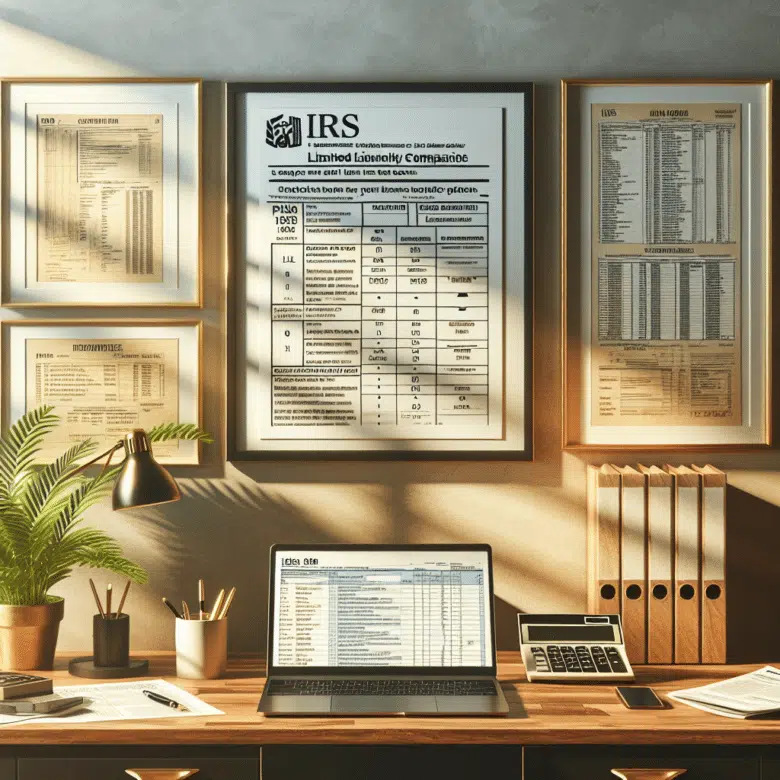Maximize Your Tax Savings with Seminar Business Deductions
When it comes to running a successful seminar business, maximizing your tax savings is crucial. By taking advantage of seminar business deductions, you can significantly reduce your taxable income and keep more money in your pocket. This article offers Tips for Success that will explore the various tax benefits of hosting seminars, the qualifying expenses that can be deducted, and how to effectively document and substantiate your deductions. We will also discuss common mistakes to avoid and strategies for maximizing your tax savings through strategic planning. So, let’s dive in and uncover the secrets to maximizing your tax savings with seminar business deductions. Seminar Business Deductions Made Easy is a simple read.
Lets not be overly brave about these deductions either. It is really hard to justify $5000 in seminar deductions when your small business isn’t making money…. It is NOT a way to write off vacations or trips by adding a seminar to the mix….
Understanding the importance of deductions for seminar businesses
As a seminar business owner, deductions are vital in reducing your overall tax liability. You can lower your taxable income by identifying and claiming eligible deductions, such as tax payments, ultimately saving money on taxes. This extra cash can be reinvested into your business, allowing you to expand, improve your offerings, or increase your marketing efforts. It is essential to stay updated on the latest tax laws and regulations to ensure you are taking advantage of all available deductions for seminar businesses.
One essential aspect of maximizing deductions is keeping accurate records of all your business expenses. This includes receipts, invoices, bank statements, and other documents supporting your deductions. Without proper documentation, you may be unable to claim these deductions, potentially resulting in higher tax liability.
Understanding the tax benefits of hosting seminars
Hosting seminars can provide you with several tax benefits that can help lower your overall tax liability. One of the main benefits is the ability to deduct the expenses associated with organizing and conducting seminars. These expenses can include venue rental fees, marketing and advertising costs, speaker fees, and even the production of materials such as handouts and presentation slides.
Another tax benefit of hosting seminars is the opportunity to claim deductions for travel and accommodation expenses. If your seminar requires you to travel to a different city or even a different country, you can deduct the cost of transportation, lodging, and meals. This can result in significant savings, especially if you frequently travel to conduct seminars.
Additionally, hosting seminars can also provide you with networking opportunities and the chance to expand your business. You can meet potential clients, collaborators, and mentors by attending and participating in industry-related events. These connections can lead to new business opportunities and further growth for your seminar business.
Qualifying expenses for seminar business deductions
To qualify for seminar business deductions, your expenses must meet certain criteria set by the Internal Revenue Service (IRS). First and foremost, the expenses must be ordinary and necessary for your seminar business. This means that they should be common and accepted in the industry and directly related to the operation of your business.
For example, renting a venue for a seminar would be considered an ordinary and necessary expense, as well as any costs for training seminars and consultations that help improve your business. These expenses can also be deducted as depreciation, as they are necessary for the ongoing success and growth of your business. Additionally, any expenses incurred for your spouse or dependent to attend a seminar may also be deductible if they have a legitimate business purpose for attending. It is important to note that expenses for business associates may be treated differently and should be carefully considered before claiming them as deductions.
Additionally, the expenses must be reasonable. While there is no specific dollar limit set by the IRS, it’s important to ensure that your expenses are justifiable and in line with industry standards. For example, if you host a small seminar with a limited number of attendees, renting an extravagant venue or hiring high-profile speakers may not be reasonable.
Lastly, the expenses must be properly documented and substantiated. This means keeping detailed records of all your expenses, including receipts, invoices, and contracts. It’s also important to maintain accurate financial records and separate your personal and business expenses. By keeping thorough documentation, you can effectively support your deductions in case of an audit.
Common deductions for seminar businesses
Several deductions are commonly applicable to seminar businesses. By understanding and utilizing these deductions, you can significantly reduce your tax burden. Some of the most common deductions include:
Maximizing deductions for venue and equipment expenses
Renting a venue and purchasing equipment are typical expenses for seminar businesses. These costs can be deducted as business expenses, reducing your taxable income. Additionally, if you use your home as a venue, you may be eligible for a home office deduction. To maximize these deductions, keep detailed records of all rental agreements, equipment purchases, and maintenance costs. Don’t forget to also deduct any costs for training seminars and consultations, as these can also be considered business expenses and can help lower your gross income.
Deducting travel and accommodation expenses for seminars
If you travel to attend or host seminars, you can deduct your travel expenses, including airfare, accommodation, meals, and transportation expenses, as part of your business trip. Be sure to keep all travel-related receipts and document the purpose of your trip for proper recordkeeping. Deducting these expenses, including taxi fares and public transportation costs, as well as the standard mileage rate for using your car, can save you a significant amount of money, as travel costs can quickly add up, especially if you are accompanied by a professional advisor.
Deducting marketing and advertising expenses
Promoting your seminars is crucial for attracting attendees and generating revenue. Luckily, marketing and advertising expenses can be deducted as business expenses. This includes costs associated with online advertising, print materials, website development, and social media campaigns. Track your marketing expenses carefully to ensure you don’t miss out on any deductions.
Deducting speaker fees and honorariums
Seminars often feature guest speakers who provide valuable insights and knowledge. If you pay speaker fees or honorariums, these expenses can be deducted as business expenses. Keep records of payment receipts, contracts, and any agreements you have with your speakers. Deducting these fees can help offset your overall seminar costs, improving your bottom line.
Deducting meal and entertainment expenses for seminars
While hosting seminars, you may incur meal and entertainment expenses for attendees. These expenses can be deducted, typically up to a certain percentage of the total cost. Additionally, other expenses such as dry cleaning and laundry care, telephone calls, and use of fax machines may also be deductible. Be sure to document the purpose of these expenses and keep receipts to support your deductions. However, it is important to note that the IRS has strict rules regarding deducting meal and entertainment expenses, so consult a tax professional to ensure compliance.
Deducting education and training expenses
As a seminar business owner, you may need to invest in your own education and training to stay up-to-date with industry trends and enhance your expertise. These expenses, including costs for training seminars and consultations, can be deducted as business expenses, reducing your taxable income. Whether you attend conferences, workshops, or online courses, keep records of your education expenses to claim these deductions and potentially save on state taxes and property taxes as well. Additionally, if you use a credit card to pay for these expenses, the interest on the credit card can also be tax-deductible. Understanding work-related education as a form of education and incorporating it into your retirement plans is crucial in maximizing your tax savings as a seminar business owner.
Common mistakes to avoid when claiming seminar business deductions
While seminar business deductions can provide significant tax savings, it is important to avoid common mistakes that could trigger an IRS audit or result in denied deductions. Here are some mistakes to watch out for:
- Failing to substantiate deductions: As mentioned earlier, proper documentation and substantiation are crucial. Failing to keep detailed records and receipts can result in denied deductions and potential penalties.
- Mixing personal and business expenses: It is important to keep your personal and business expenses separate. Mixing the two can raise red flags with the IRS and lead to an audit.
- Overstating deductions: Be cautious when claiming deductions and ensure that they are reasonable and supported by documentation. Overstating deductions can also trigger an audit.
- Not understanding the tax laws: Tax laws can be complex and ever-changing. It is important to stay informed and consult with a tax professional to ensure that you are in compliance and taking advantage of all available deductions.
By avoiding these common mistakes and following proper tax practices, you can confidently claim your seminar business deductions and maximize your tax savings.
Maximizing your tax savings through strategic planning
To further maximize your tax savings, it is important to engage in strategic planning throughout the year. You can optimize your deductions and minimize your tax liability by proactively managing your income and expenses. Here are some strategies to consider:
- Timing your expenses: Consider the timing of your deductible expenses. If possible, accelerate expenses into the current tax year to increase your deductions.
- Maximizing retirement contributions: Contributing to retirement accounts, such as a SEP-IRA or a solo 401(k), can provide both short-term tax savings and long-term financial security.
- Using the home office deduction: If you have a dedicated space in your home for your seminar business, you may be eligible for the home office deduction. This allows you to deduct a portion of your home-related expenses, such as rent or mortgage interest, utilities, and insurance.
- Taking advantage of tax credits: Research and take advantage of any available tax credits for small businesses. These credits can directly reduce your tax liability and result in significant savings.
By implementing these strategic planning techniques and staying proactive with your tax management, you can optimize your seminar business deductions and keep more money in your pocket.
Hiring a tax professional to navigate seminar business deductions
Navigating the complexities of seminar business deductions can be overwhelming, especially if you are not well-versed in tax laws and regulations. That is why hiring a tax professional specializing in small businesses and seminar business deductions is highly recommended.
A tax professional can provide expert advice, help you identify eligible deductions, ensure that you comply with tax laws, and maximize your tax savings. They can also assist with tax planning, preparation of your tax returns, and representation in case of an IRS audit.
While hiring a tax professional may involve an additional expense, the potential tax savings and peace of mind they can provide are well worth it. By outsourcing your tax-related tasks to a professional, you can focus on growing your seminar business and leave the tax complexities in capable hands.
Conclusion: Take advantage of IRS seminar business deductions for maximum tax savings
In conclusion, seminar business deductions can be a powerful tool for maximizing your tax savings. By understanding the tax benefits of hosting seminars, identifying the qualifying expenses, and effectively documenting and substantiating your deductions, you can significantly reduce your taxable income and keep more money in your pocket.
Avoiding common mistakes, engaging in strategic planning, and hiring a tax professional can further enhance your tax savings and ensure compliance with tax laws. By taking advantage of seminar business deductions, you can not only lower your tax liability but also reinvest the savings into growing your seminar business.
So, don’t leave money on the table. Start exploring the world of seminar business deductions and unlock the full potential of your tax savings today.
Ready to maximize your tax savings and grow your seminar business? Hire APC1040, tax professionals specializing in seminar business deductions. Get expert advice, ensure compliance, and save more money. Schedule a consultation today!
FAQs
What are the different types of business expenses that can be deducted for a seminar business?
Business expenses that can be deducted for seminar businesses include venue rental fees, catering costs, speaker fees, marketing expenses, travel and accommodation for attendees or speakers, seminar materials, equipment rentals, and any other costs directly related to organizing and conducting the seminar.
How do you determine which seminar expenses are deductible for tax purposes?
Determine seminar expenses’ deductibility by ensuring they are directly related to business, necessary for business, reasonable in amount, and properly documented. Expenses such as seminar registration fees, travel costs, accommodation, and materials can typically be deducted if meeting these criteria.
Are there specific requirements or limitations for claiming deductions related to seminars in a business?
To claim deductions related to seminars in a business, ensure the seminar is directly related to your business, benefits your business, and helps maintain or improve skills required in your current business. Also, costs must be ordinary and necessary for your business. Keep detailed records for documentation.
Can seminar-related travel expenses be included as deductions for a seminar business?
Yes, seminar-related travel expenses like airfare, hotel accommodations, meals, and transportation can typically be included as deductions for a seminar business. Make sure to keep detailed records and receipts to support these deductions when filing your taxes.




